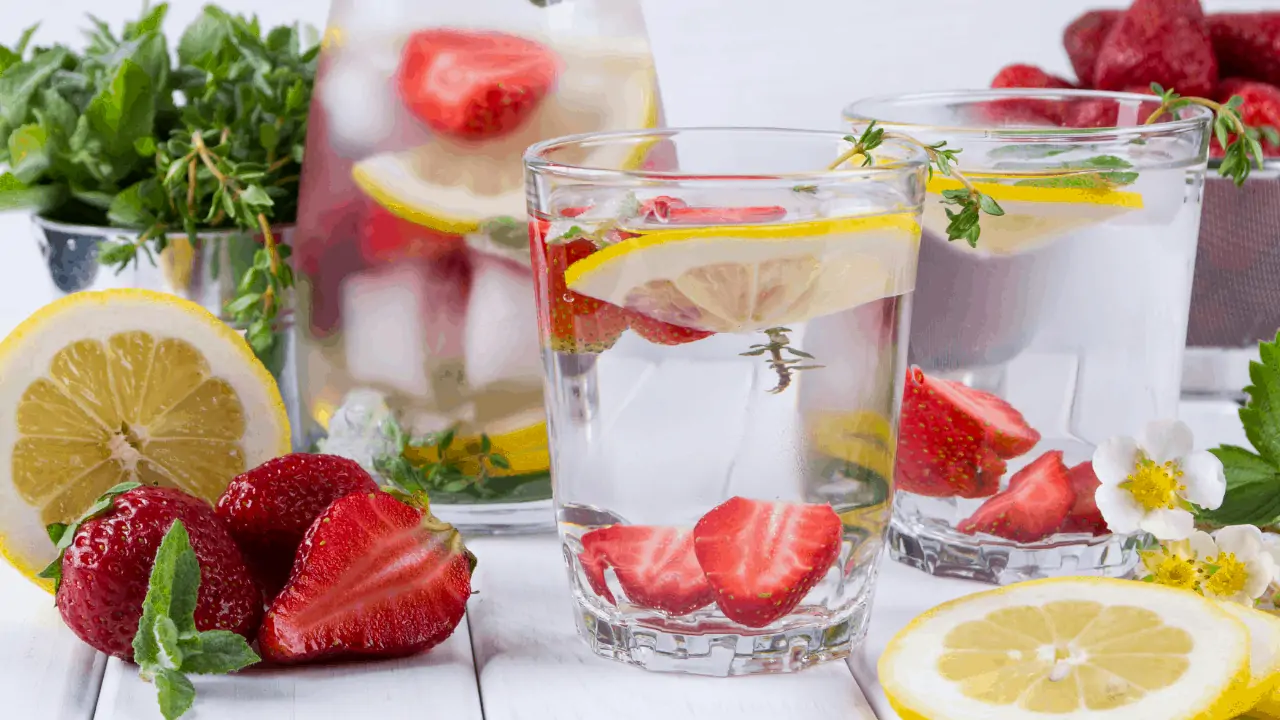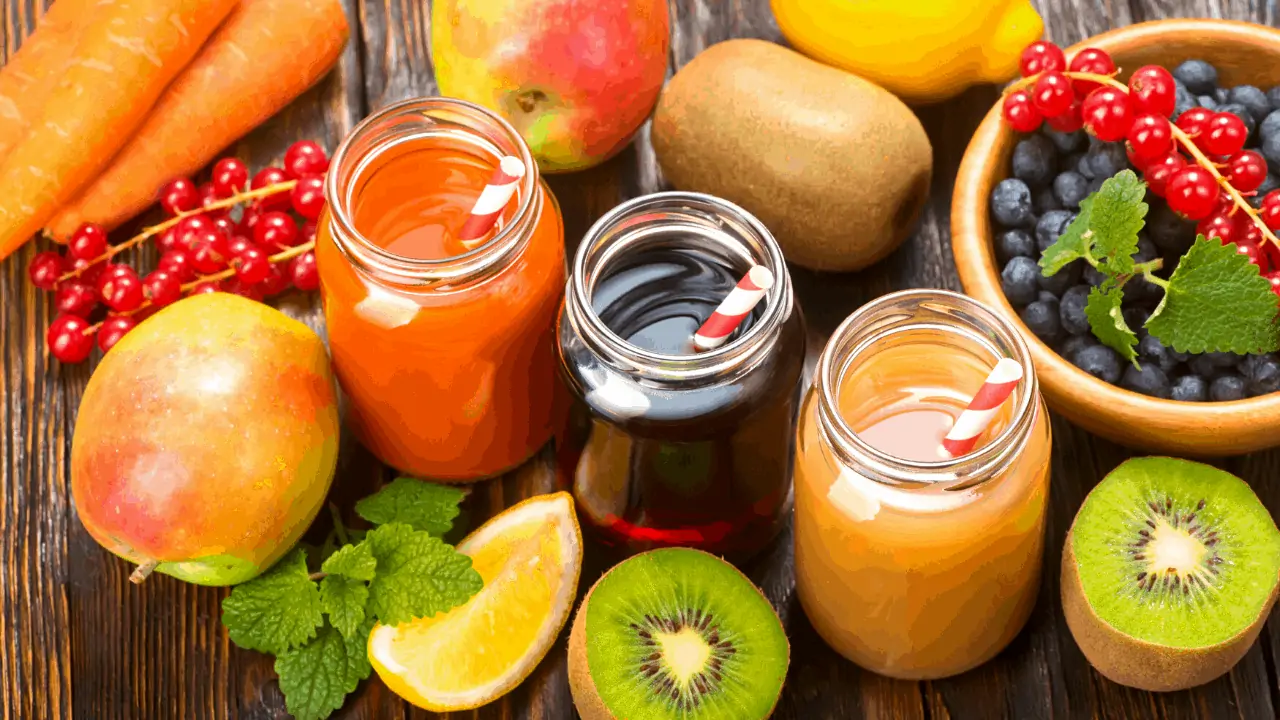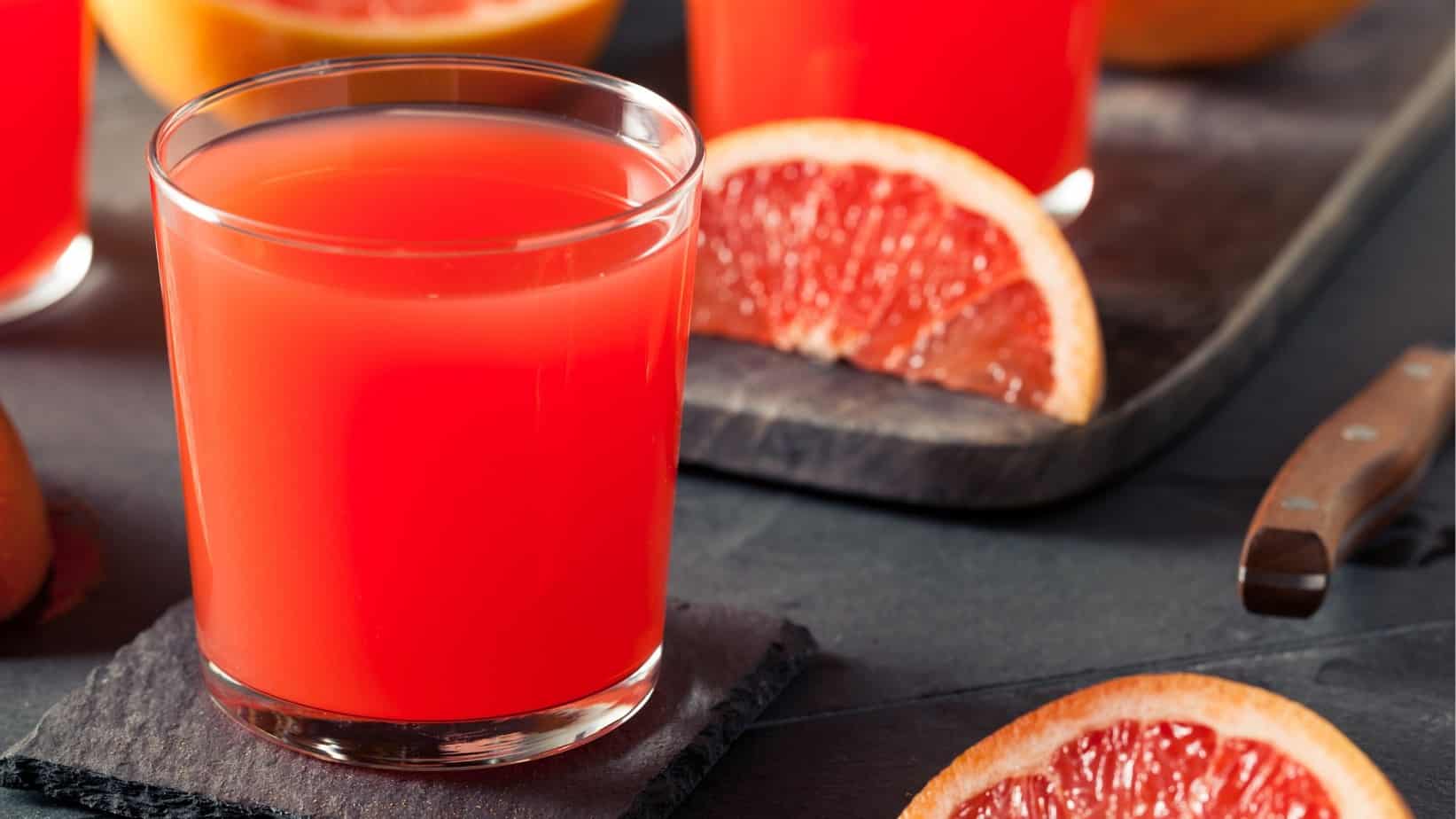Orange juice, specifically vitamin c often receives praise as the hero during flu season. But is it really effective for a cold and sore throat or is this another urban myth?
While orange juice may potentially help with your cold, it is not necessarily ideal for a sore throat because it is slightly acidic and drinking it can make your irritated and already sensitive throat all that more painful. When you have a sore throat, a better approach is to choose a warm tea.
But Why Do People Think Orange Juice is Good For a Cold?
The evidence to suggest that vitamin C can cure a cold or flu is conflicting. Regular consumption of vitamin C has been linked to shorter, less severe colds, but not necessarily with lowering the risk of catching a cold in the first place.
While data has suggested that certain subgroups of the population may benefit from consistent vitamin C supplementation, the data does not support a consistent correlation between supplementation and illness. Nevertheless, supplementing with high doses of vitamin C within 24 hours of the onset of symptoms, and continuing it for 5 days seems to offer the most benefit.
As a water-soluble vitamin, vitamin C needs to be consumed every day as the body does not store the excess for later use. One cup of orange juice contains just over 200% of the recommended daily allowance of vitamin C; a daily glass of orange juice can be one of the easiest ways to ensure that you are getting enough in your diet.
Oranges are not the only fruit or type of juice that contains vitamin C. Other citrus fruits such as lemons and limes, as well as kiwis, papaya, and pineapple also contain ample amounts of vitamin C. Ultimately, the best way to reduce the risk of catching a cold is by practicing good hygiene. This means washing your hands often, avoiding touching your face, wiping down commonly touched surfaces such as TV remotes and doorknobs, and coughing into a tissue or into your elbow.

Does Orange Juice Help Boost the Immune System?
No, not quite. There isn’t a simple solution to boosting the immune system. The immune system is a complex network that protects the body from pathogens; from our skin acting as a barrier, our stomach acid killing bacteria, and white blood cells fighting off infection.
A healthy lifestyle is the best way to support the immune system, enabling it to function at its best. This means eating a healthy well-balanced diet, including fruits and vegetables to help meet your micro-nutrient needs. Additionally, excessive consumption of sugar can suppress the immune system. So, a sugary glass or two of orange juice might not be all that it is cracked up to be!
FAQs About Orange Juice For a Sore Throat and Cold
So, it seems that orange juice is not exactly the best solution for a sore throat. But can the beverage help with other cold-like symptoms? Here are a few frequently asked questions about orange juice and cold relief.
Is orange juice good for strep throat?
Orange juice should is not good for strep throat as the high acid content in the juice can further irritate the throat. Strep throat is a disease caused by a small ball of bacteria in the throat. The disease has many of the same symptoms as a common cold, but it‘s quite a different illness. With strep throat, most patients require antibiotics to avoid long-term damage to the throat tissue. If you’ve been diagnosed with strep throat, you may think that the vitamin C content in orange juice can help you to recover. However, rather than relying on homemade remedies, you would experience greater relief by speaking with your doctor and getting the correct prescription.
Is orange juice good for a cough?
While orange juice isn’t great for a sore throat or for strep throat, orange juice can help with a cough. This is because the citric acid in orange juice forces the body to cough out phlegm, getting rid of excess phlegm in the lungs. At the same time, the vitamin C in the juice helps to prevent the production of more phlegm in the body.
Is orange juice good for the flu?
If you have a serious cold that turns into feverish flu, can orange juice help? As it turns out that just like with colds, pumping vitamin C into your system when you have the flu probably won’t be that effective for boosting your immune system and shortening the lifespan of your flu. This is because you actually need to have vitamin C in your system before the flu begins in order to benefit from the nutrient. So, it may be best to up your daily vitamin C intake (perhaps with citrus fruits or orange juice) to help lessen the severity of your future flu.
What Are Some Other Drinks For Sore Throat?
While orange juice for a sore throat may not be as effective as we once thought, there are some other beverages that can immediately help with your symptoms.
Lemon Water
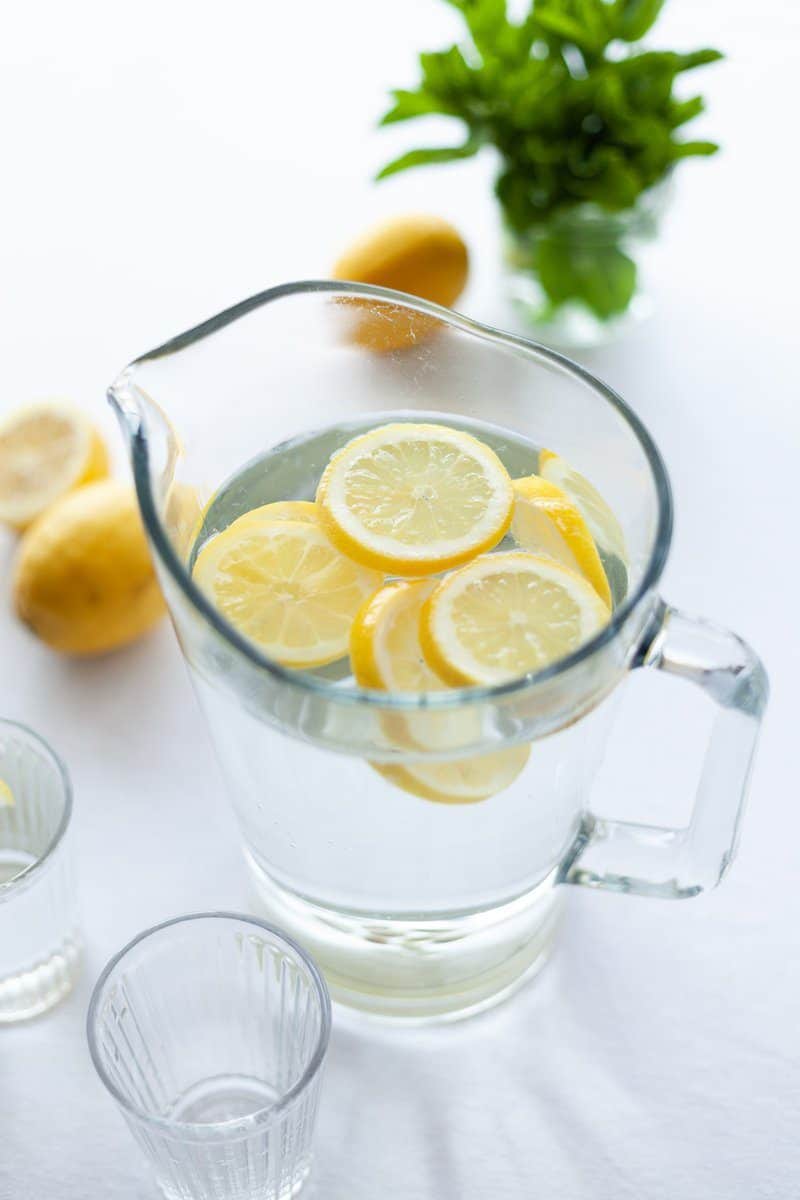
Lemon water, when made from the juice of one full lemon, contains 30.7mg of vitamin C. This is roughly a third of the RDA of this vitamin for men and almost half of the RDA for women. Lemon water is a simple way to stay hydrated while also consuming vitamin C, but it will be much gentler on the throat than a glass of orange juice. One lemon contains 1.5 grams of sugar, making this beverage considerably lower in sugar than orange juice as well.
Salt Water
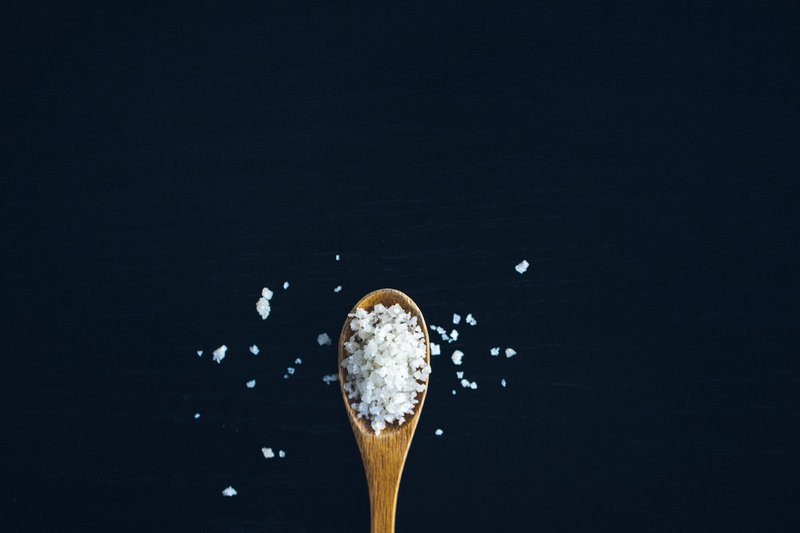
Gargling a solution of salty water, and maybe even with added baking soda, is a common remedy for a sore throat. One study noted that gargling a salt water solution not only eased a sore throat but even lowered the occurrence of respiratory tract infection. Additionally, salt is antibacterial as it kills bacteria by sucking the water out of them. For a sore throat, the ratio of salt to warm water should be around 1/4 to 1/2 teaspoon per 8 ounces of water. Gargle the drink for a few seconds and then spit it out for best results.
Manuka honey tea
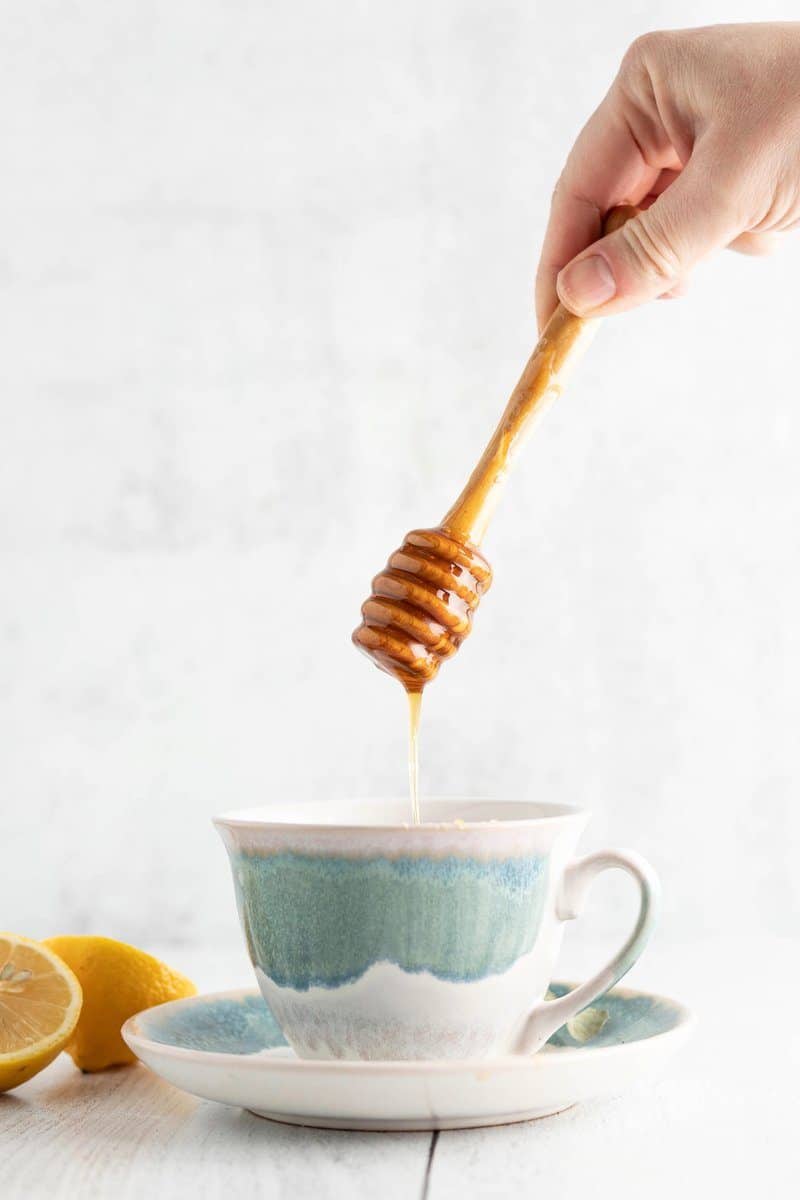
A warm drink consisting of manuka honey and water can also remedy a sore throat and a cold. As manuka honey is antibacterial and antimicrobial, it can kill the bacteria causing the sore throat. It helps to soothe the throat and is more pleasant than the salt water solution.
For a more effective combo, Manuka honey can also be added to chamomile tea. As chamomile is naturally antibacterial it can also help kill the bacteria causing the cold and sore throat. The anti-inflammatory properties of chamomile can ease the swelling and redness that accompany a sore throat.
Ginger Tea
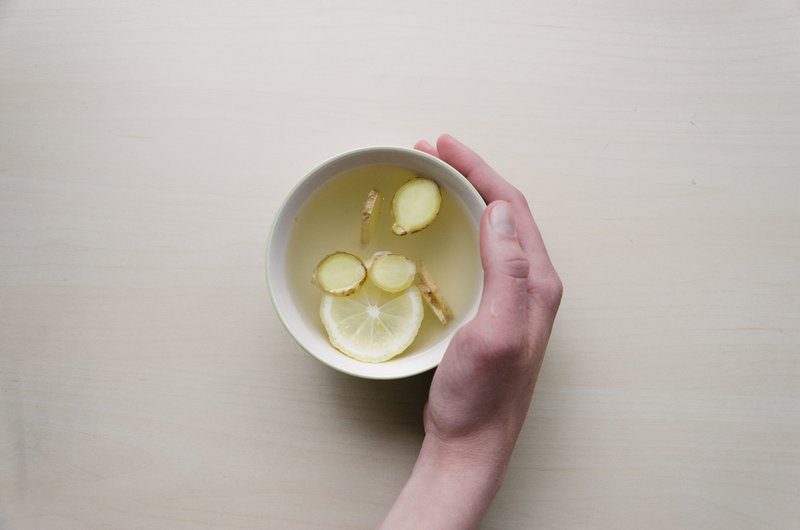
Ginger is an herb, commonly used in tea, that can remedy a cold and a sore throat. The spice can help combat nausea and stimulate the appetite which can help in recovering from a cold. Studies showed that ginger can be as effective as some anti-nausea medications in fighting nausea.
Ginger is also antibacterial and can fight off many strains of bacteria. Ginger tea can be made with sliced ginger root and warm water. For a nicer tasting hot tea, ground ginger and manuka honey can also be added to chamomile tea.
Summary
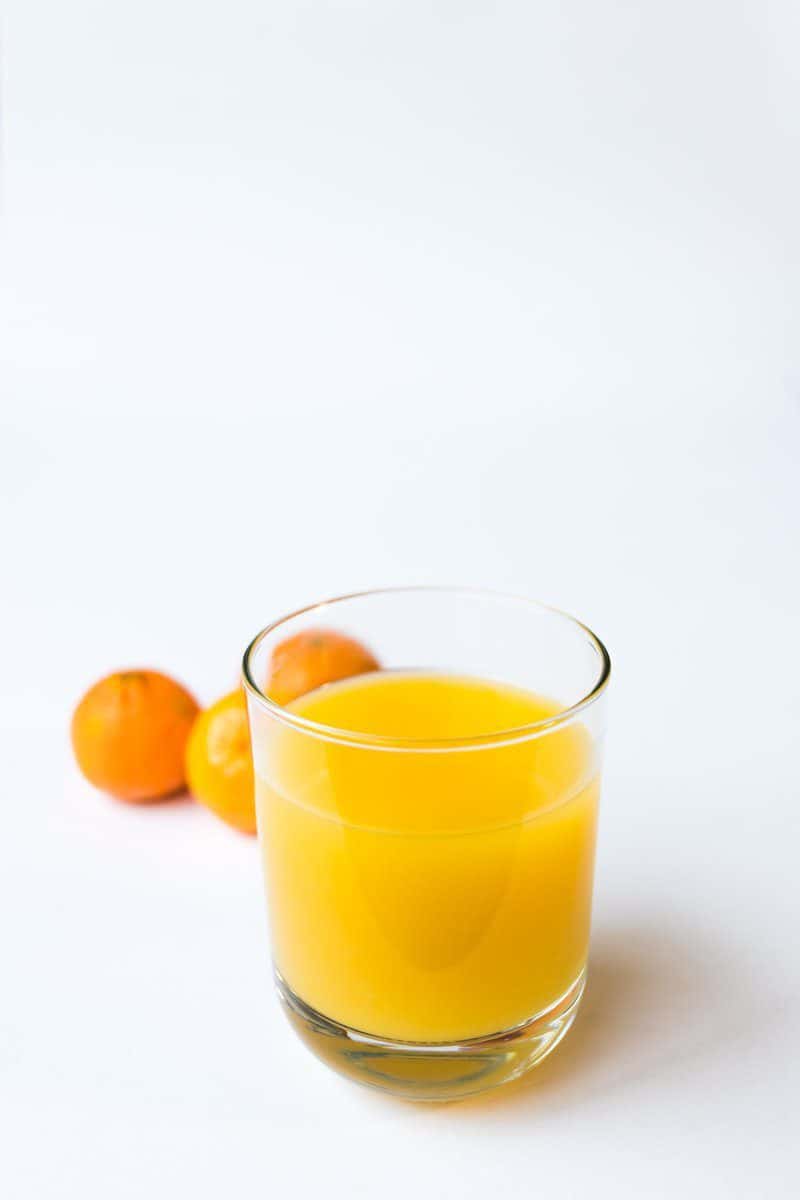
While the vitamin C content of orange juice is considered to be good for a cold or sore throat, it is not necessarily the best remedy. Salt water, manuka honey, and ginger tea can do a better job of easing the symptoms of a cold while also fighting the bacteria causing it.
If you would prefer to drink orange juice, we recommend diluting it with water to reduce not only the sugar concentration but the overall acidity. Doing it this way will still have you reap the benefits, as even just half a cup of pure orange juice meets 100% of the RDA.
Orange juice can help with reducing the severity of a cold or the flu if it is consumed daily to help you meet the RDA of vitamin C, but there are other less sugary sources to choose from. As acidity can be an irritant for your throat, consuming vitamin C from less acidic fruits and vegetables will often be a better solution.



